'You Don't Look Like a Judge': Female Jurists, Lawyers Mistaken for Assistants
"This evening I was once again told, 'You don't look like a judge,' " Texas Supreme Court Justice Eva Guzman tweeted on Wednesday — prompting many Florida judges and lawyers to agree.
February 01, 2019 at 05:13 PM
8 minute read
The original version of this story was published on Daily Business Review
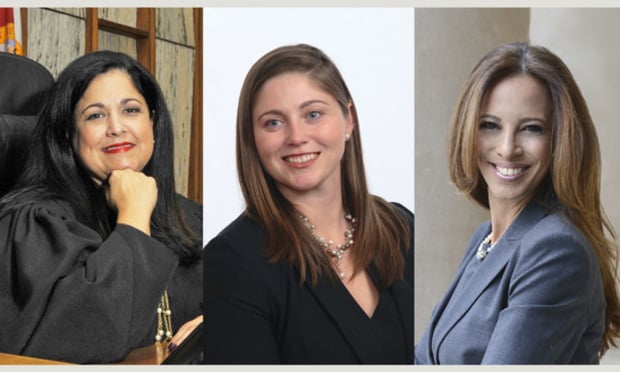 (l-r) Miami-Dade Circuit Chief Judge Bertila Soto, FAWL president Jennifer Shoaf-Richardson, and Florida Bar President Michelle Suskauer. Courtesy photos.
(l-r) Miami-Dade Circuit Chief Judge Bertila Soto, FAWL president Jennifer Shoaf-Richardson, and Florida Bar President Michelle Suskauer. Courtesy photos.
When Michigan attorney Marie Reimers tweeted out her frustration over being confused for a paralegal on Wednesday, Texas Supreme Court Justice Eva Guzman could relate.
“This evening I was once again told, 'You don't look like a judge,'” Guzman wrote, prompting Michigan Judge Qiana Lillard to share a similar anecdote.
People tell me all the time I don't look like a judge even when I'm in my robe at official events
— Judge Qiana Lillard (@JudgeQLillard) January 31, 2019
The tweets conjured up a familiar feeling for Third District Court of Appeal Judge Bronwyn Miller, who was frequently mistaken for a judicial assistant while serving on the Miami-Dade Circuit bench.
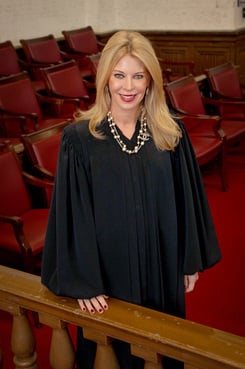 Third District Court of Appeal Judge Bronwyn C. Miller. Photo: J. Albert Diaz/ALM.
Third District Court of Appeal Judge Bronwyn C. Miller. Photo: J. Albert Diaz/ALM.“Oftentimes, my door would be open and attorneys would inform me that they were there to check in and ask if Judge Miller was here yet,” Miller said.
Miller would simply check them in without revealing who she was.
“Then I would walk into the courtroom for the hearing, and the look on their face was general astonishment,” Miller said. “I would receive effusive apologies.”
Miller pointed out that it may not always have been gender bias, since lawyers typically expect to see an assistant when they check in, but said she's noticed some inherent assumptions.
“Because you're female and you're standing there and you're not wearing a robe, the assumption is that you're a judicial assistant,” Miller said.
As Miller was 32 when she rose to the bench, some litigants commented that she wasn't old enough to be a judge.
“I'm not sure they would have said that to a male judge,” she said.
It's been a similar series of misunderstandings for Tampa lawyer Kyleen A. Hinkle, president-elect of the Florida Association for Women Lawyers.
“I often get mistaken as the court reporter, even when I have the file and wearing a suit with no court reporting equipment,” said Hinkle, who's heard the same story from many female colleagues.
At a deposition in January, Miami Greenspoon Marder partner Deborah Baker-Egozi fielded assumptions from male and female receptionists that she was the court reporter.
“I gently pointed out, with a smile on my face, that I am lead trial counsel for my client, but that I am routinely asked if I am the court reporter,” Baker-Egozi said.
Having practiced law for almost two decades, Baker-Egozi has seen it all.
“I have heard countless stories from female attorney friends of mine who also happen to be women of color,” Baker-Egozi said. “Bailiffs and clerks routinely confuse them with criminal defendants when they arrive to court dressed in a suit and carrying a briefcase.”
'What a Lawyer Looks Like'
Stories like this don't surprise FAWL president Jennifer Shoaf Richardson.
“Unfortunately, we find that this issue persists even at the highest levels of our profession and it is damaging at all levels,” Richardson said. “The perception of 'what a lawyer looks like' is not reflective of the reality that more than half of law school graduates are women.”
Florida Bar President Michelle Suskauer was mistaken for a court reporter on her first day as a public defender, and again during her campaign—when she was also advised to cut her hair, wear longer skirts and avoid social media.
“Would a man running for this office ever be told that? Absolutely not,” Suskauer said.
Suskauer has made a point of championing this issue by appointing more women to leadership positions and helping develop Blue Ribbon awards for firms that hire, promote and retain female lawyers.
It's not just men who make the assumption, Suskauer stressed. But in her view, most women have experienced some type of explicit or implicit bias, so it's best to be equipped with a response beforehand.
“And not an angry response,” Suskauer said. “Because this is instructive, and the conversation should be constructive in order to make change.”
At the time, Suskauer replied, “No, I'm not the court reporter. My name is Michelle Suskauer. I'm an attorney.”
Baker-Egozi agreed—anger or sarcasm doesn't help.
“Because I do not attribute any malice to these remarks, I always respond calmly and kindly,” she said. I “have found that to be much more impactful.”
Related story: Focus on Parkland Judge's Appearance, Not Jurisprudence, Seen as 'Disheartening', Women's Law Group Says
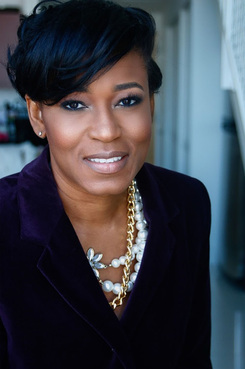 Monique Hayes, of Goldstein & McClintock. Courtesy photo.
Monique Hayes, of Goldstein & McClintock. Courtesy photo.Monique Hayes, president of the Wilkie D. Ferguson Jr. Bar Association, cautioned against any ”uproar” over women being mistaken for paralegals—who are, after all, professionals.
“There are some who look at a woman in a courtroom or boardroom and can't fathom the thought that she could be anything other than a paralegal, not the judge, the lead attorney or client,” Hayes said. “That is appalling to me, but I don't think we should confuse an innocent mistake for bias or condescension.”
When Palm Beach Circuit Judge Meenu Sasser calls attorneys, they often ask her, “Can you put Judge Sasser on the line?”
“Quite often they assume because I'm a female calling that I'm the assistant and are somewhat taken aback that it's actually the judge who's calling,” Sasser said. “But we just joke and take it with a pinch of salt. It's just a moment of levity, but it does happen.”
But women in the profession say if Florida's courtrooms are anything to go by, change is already afoot.
“It's great that we're having an increasing number of women serving on our federal court bench and our state court bench because it expands the view of justice,” Sasser said. “Perceptions are changing as to the stereotype of what a judge should be or what a judge should look like.”
Miami-Dade Circuit Chief Judge Bertila Soto had similar experiences as a younger judge, but now presides over a diverse court that's more than 50 percent female.
“Fortunately, there is continuing to be a growing awareness of the underlying assumptions in comments like these, and with awareness and education comes change,” Soto said.
Uncomfortable Conversations
To eradicate gender bias, men and women have to talk about it, according to Suskauer.
“These are not easy conversations to have. They're uncomfortable,” Suskauer said. “And my comments and these conversations are not meant to be accusatory. They're meant to be empowering. How can we actually change this narrative?”
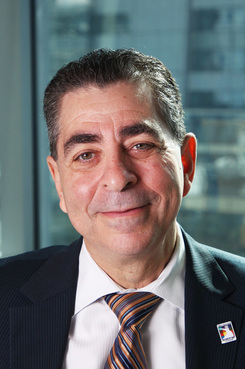 Michael J. Higer. Photo: J. Albert Diaz/ALM.
Michael J. Higer. Photo: J. Albert Diaz/ALM.Sensitivity is key, according to former Florida Bar president Michael J. Higer, partner at Berger Singerman's Miami office.
“Having the conversation is probably the most important part of all this, because if you're not even aware of it and you're not even sensitive to it, then of course you're going to just continue to do it and be blind to it,” he said.
Higer stressed that while he's not a woman, his baby-faced 27-year-old son is often misjudged too.
“Whenever we're out in a professional setting of some sort, people ask him, 'How's college?' or, 'Are you still living at home?' It would be easy for someone who's older like me to say, 'Oh, son get over it.' But for him it's bothersome. You can't minimize the stigma and the hurt that it causes.”
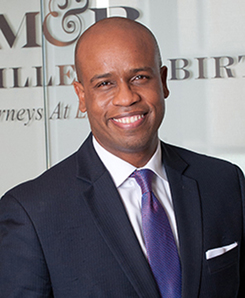 Marlon Hill, with Hamilton, Miller & Birthisel. Photo: Robert Klemm
Marlon Hill, with Hamilton, Miller & Birthisel. Photo: Robert KlemmMarlon A. Hill of Hamilton, Miller & Birthisel—where half of the partners are female—said he's seen firsthand how crucial it is that women have free rein to demonstrate their best.
“We cannot afford to impose these types of biases that we may have against women,” Hill said. “Women comprise a significant part of our leadership at every level, and deserve to be given the opportunity of demonstrating their brilliance, their leadership, their acumen without the obstacles or inherent biases of the other gender.”
Related story:
This content has been archived. It is available through our partners, LexisNexis® and Bloomberg Law.
To view this content, please continue to their sites.
Not a Lexis Subscriber?
Subscribe Now
Not a Bloomberg Law Subscriber?
Subscribe Now
NOT FOR REPRINT
© 2025 ALM Global, LLC, All Rights Reserved. Request academic re-use from www.copyright.com. All other uses, submit a request to [email protected]. For more information visit Asset & Logo Licensing.
You Might Like
View All
12-Partner Team 'Surprises' Atlanta Firm’s Leaders With Exit to Launch New Reed Smith Office
4 minute read
Morgan Lewis Shutters Shenzhen Office Less Than Two Years After Launch

After Breakaway From FisherBroyles, Pierson Ferdinand Bills $75M in First Year
5 minute read
Judge Rejects Walgreens' Contractual Dispute Against Founder's Family Member
5 minute readTrending Stories
- 1Democracy in Focus: New York State Court of Appeals Year in Review
- 2In Vape Case, A Debate Over Forum Shopping
- 3SDNY Criminal Division Deputy Chief Returns to Debevoise
- 4Brownstein Adds Former Interior Secretary, Offering 'Strategic Counsel' During New Trump Term
- 5Tragedy on I-95: Florida Lawsuit Against Horizon Freight System Could Set New Precedent in Crash Cases
Who Got The Work
J. Brugh Lower of Gibbons has entered an appearance for industrial equipment supplier Devco Corporation in a pending trademark infringement lawsuit. The suit, accusing the defendant of selling knock-off Graco products, was filed Dec. 18 in New Jersey District Court by Rivkin Radler on behalf of Graco Inc. and Graco Minnesota. The case, assigned to U.S. District Judge Zahid N. Quraishi, is 3:24-cv-11294, Graco Inc. et al v. Devco Corporation.
Who Got The Work
Rebecca Maller-Stein and Kent A. Yalowitz of Arnold & Porter Kaye Scholer have entered their appearances for Hanaco Venture Capital and its executives, Lior Prosor and David Frankel, in a pending securities lawsuit. The action, filed on Dec. 24 in New York Southern District Court by Zell, Aron & Co. on behalf of Goldeneye Advisors, accuses the defendants of negligently and fraudulently managing the plaintiff's $1 million investment. The case, assigned to U.S. District Judge Vernon S. Broderick, is 1:24-cv-09918, Goldeneye Advisors, LLC v. Hanaco Venture Capital, Ltd. et al.
Who Got The Work
Attorneys from A&O Shearman has stepped in as defense counsel for Toronto-Dominion Bank and other defendants in a pending securities class action. The suit, filed Dec. 11 in New York Southern District Court by Bleichmar Fonti & Auld, accuses the defendants of concealing the bank's 'pervasive' deficiencies in regards to its compliance with the Bank Secrecy Act and the quality of its anti-money laundering controls. The case, assigned to U.S. District Judge Arun Subramanian, is 1:24-cv-09445, Gonzalez v. The Toronto-Dominion Bank et al.
Who Got The Work
Crown Castle International, a Pennsylvania company providing shared communications infrastructure, has turned to Luke D. Wolf of Gordon Rees Scully Mansukhani to fend off a pending breach-of-contract lawsuit. The court action, filed Nov. 25 in Michigan Eastern District Court by Hooper Hathaway PC on behalf of The Town Residences LLC, accuses Crown Castle of failing to transfer approximately $30,000 in utility payments from T-Mobile in breach of a roof-top lease and assignment agreement. The case, assigned to U.S. District Judge Susan K. Declercq, is 2:24-cv-13131, The Town Residences LLC v. T-Mobile US, Inc. et al.
Who Got The Work
Wilfred P. Coronato and Daniel M. Schwartz of McCarter & English have stepped in as defense counsel to Electrolux Home Products Inc. in a pending product liability lawsuit. The court action, filed Nov. 26 in New York Eastern District Court by Poulos Lopiccolo PC and Nagel Rice LLP on behalf of David Stern, alleges that the defendant's refrigerators’ drawers and shelving repeatedly break and fall apart within months after purchase. The case, assigned to U.S. District Judge Joan M. Azrack, is 2:24-cv-08204, Stern v. Electrolux Home Products, Inc.
Featured Firms
Law Offices of Gary Martin Hays & Associates, P.C.
(470) 294-1674
Law Offices of Mark E. Salomone
(857) 444-6468
Smith & Hassler
(713) 739-1250








